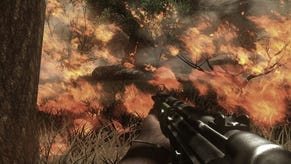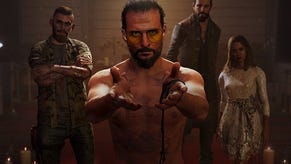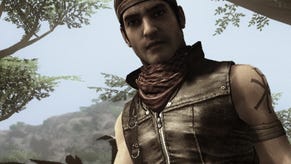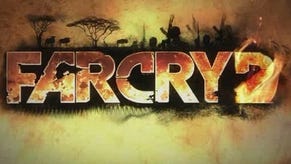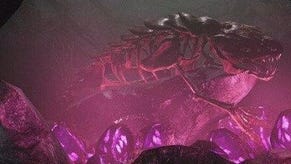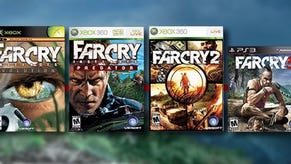Far Cry 2
Island paradise out, malaria in.
The plot is simple: you're a mercenary tasked with tracking down the Jackal, the arms dealer whose weapons are fuelling both sides of the war. Yet the game refuses to conform to your expectations, wheeling out endless missions that don't lead you closer to your target, but do give you a queasy glimpse of the world his actions have created. As the game strides into its second half, it becomes obvious that you're not hunting the Jackal so much as building up a portrait of him, your closest points of contact being when you stumble across nasty tableaux he has constructed - slaughtered bus passengers, or a downed airplane - and the tapes he has left alongside them detailing his thinking.
Or you might not find them at all. And that's the most brilliant design choice: Far Cry 2 won't patronise you by doling out story in chunks. It would rather allow you to search out the details for yourself, depending on your own eagerness to do so. Instead of following a predictable trail of clues, you take jobs from the game's conflicting factions, and set about exploring at your own pace. And the factions don't make anything clearer, either: both the dogmatic and pompous UFLL and the self-indulgent and swaggering APR are deeply entangled in violence, and equally ineffectual. There's no good and bad choices here - the game makes it clear that time has come and gone and all that's left is the playing out of a mindless war - there's only money, information, and your target.
What this all actually translates to is hardly groundbreaking, however - the game's missions conforming to the, "Go here, kill everyone, and possibly blow up an object" school of level design. Accepting unofficial alterations to the plan from a buddy makes things slightly more interesting, but the action really clicks when you realise the game's humdrum framework is encouraging you to experiment: the targets may be uninspiring, but you can approach them from almost any angle, using terrain, the landscape's endless capacity to catch fire, or even stealth. For the first few hours, I found the game a plod, until I realised that it was my playing style that was plodding, and if I toyed with objectives, things improved immensely; I was soon chaining together gunfights, staging inept sieges, and bringing the weapons and environments together in explosively hilarious combinations.
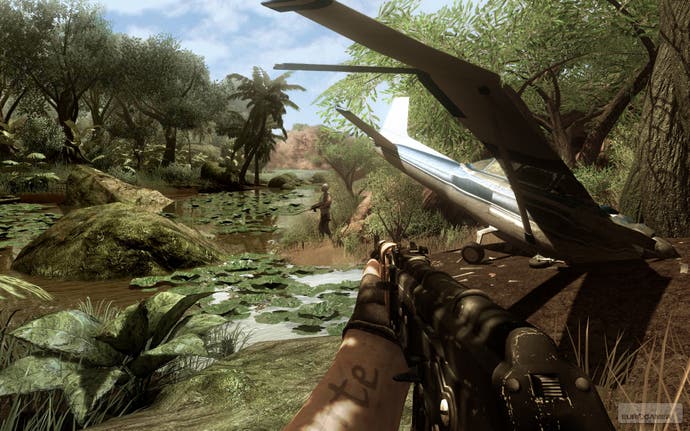
I never grew to love the game's vehicle combat, though, and the regular switching between driving and stopping to use the gun turret that it imposes (driving while shooting is out of bounds, and almost every mission is a solo affair). Worse still are the regular roadside checkpoints, home to irritatingly fast respawns. They'll whittle away your health and reduce vehicles to smoking wrecks on most drive-bys, so early on you'll likely fall into the routine of stopping before each intersection (and there are a lot in the game), shooting as many people as you can from a distance while they turn your ride into shrapnel, before climbing down, finishing off any stragglers, and stealing one of their jeeps to proceed. It's ballistic musical chairs, but without the music. And it also isn't as much fun as I just made it sound.
It's a mechanic that struggles to find any variation, and, due to a bizarre piece of sadistically repetitive design, you'll be doing it on average at least twice every five minutes. Presumably getting around in a war zone is a challenge, but if Ubisoft is struggling to capture the prospect of day-to-day terror, it only manages the drip-drip-drip of regular annoyance. An openworld game where it's preferable to get the bus between targets is one in need of rebalancing, and no amount of clever ideas will entirely redeem it.

